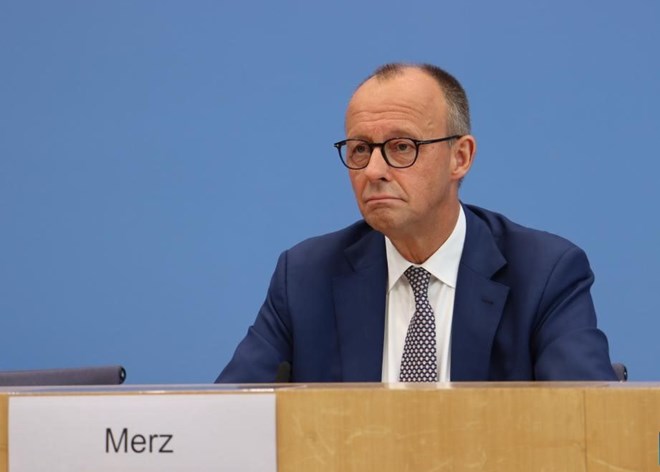German Chancellor Friedrich Merz told Ukrainian President Volodymyr Zelensky on November 13 that he needed to ensure that Ukrainian youth would not travel extensively to Germany.
They need to stay at home, Mr Merz said at a trade conference in Berlin, informing him of the phone call he described as a long one with President Volodymyr Zelensky.
Mr. Merz said the German government will also adjust the level of support for Ukrainian refugees to "encourage them to work instead of depending on the welfare system".
Under the bill that Berlin is expected to pass on November 17, Ukrainians coming to Germany after April 1, 2025 will receive benefits under the Law on Welfare for Asylum seekers - a level lower than the current Citizen Assistance.
This means they will be treated as normal asylum seekers, while those arriving before April 1, 2025 will retain their preferential support level.
However, immediate access to the labor market remains maintained, and Ukrainian refugees continue to access consulting services and job opportunities.
Under the mechanism implemented since the beginning of the conflict, Ukrainian citizens in Germany are eligible to receive about 563 euros per month, along with additional support for rent and other needs. Meanwhile, seekers of asylum from other countries receive only around €180 a month, along with some additional subsidies.

The European Statistics Office Eurostat said EU countries welcomed 79,205 Ukrainian refugees in September, the highest monthly increase since August 2023. The agency explained that the increase comes from Ukraine's decision in August 2025 to allow 18-22 year old men to be free to leave the country.
There are currently more than 1.2 million Ukrainian refugees - equivalent to 28.3% of the total number of Ukrainians in the EU - in Germany, according to Eurostat statistics last week.
The developments in Germany came shortly after Poland - another major destination for Ukrainian migrants - tightened regulations on refugees. At the end of September, Warsaw passed a new law cutting access to benefits for those who do not work in Poland.
In the US, Ukrainian refugees have also had their access to food aid cut as a result of changes in the big and Beautiful (OBBB) bill signed by President Donald Trump in July.
The law cuts federal spending on people residing in the US under temporary or humanitarian protection and adjusts the Supplemental Nutrition Assistance Program (SNAP), limiting beneficiaries to US citizens, legal permanent residents, and some other small groups.











